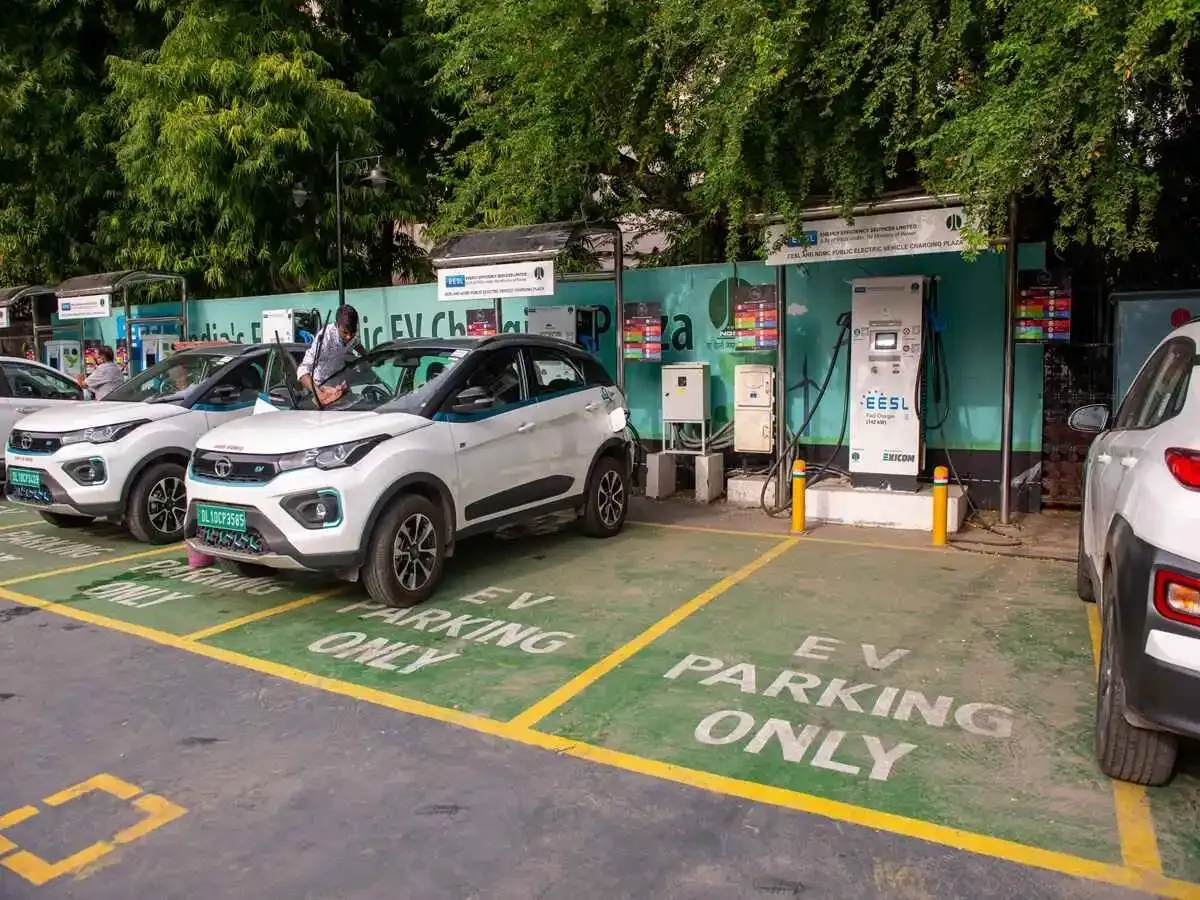Business News
PM E-DRIVE: Govt rolls out norms for setting up EV charging stations; who can set up stations and where
.png)
3 min read | Updated on September 29, 2025, 13:36 IST
SUMMARY
The government has released operational guidelines for setting up around 72,300 public EV charging stations under the ₹10,900-crore PM E-DRIVE scheme.

The norms recommend a tiered subsidy structure to be followed to support the installation of EV charging infrastructure across different locations.
The Centre has released detailed operational guidelines for the establishment of about 72,300 public electric vehicle (EV) charging stations across the country with a ₹2,000-crore outlay under the ₹10,900 crore PM Electric Drive Revolution in Innovative Vehicle Enhancement (PM E-DRIVE) scheme.
The norms recommend a tiered subsidy structure to be followed to support the installation of EV charging infrastructure across different locations.
According to the guidelines, ministries, central public sector enterprises (CPSEs), state governments, union territories, and their PSUs are eligible to submit proposals for charging stations.
Nodal agencies appointed by these entities will aggregate demand and identify suitable sites. Entities may choose to set up, operate, and maintain EV PCS on their own or engage Charge Point Operators (CPOs) for the same.
Deployment locations
The eligible entities will prioritise million-plus population cities, smart cities, state/UT capitals, satellite towns of metro cities, and cities under the National Clean Air Programme to ensure a focused approach.
Inter-city and inter-state highways with high vehicular density or connecting major industrial hubs and ports will also be identified in consultation with the Ministry of Road Transport and Highways.
Charging standards
All chargers supported under the scheme must conform to the Ministry of Power’s 2024 guidelines. Light EVs such as two- and three-wheelers will be covered under IS-17017-2-6 and 2-7 standards with capacity up to 12 kW, while four-wheelers, buses and trucks will use CCS-II chargers ranging from 50 kW to 500 kW, with fast-charging guns of at least 120 kW for heavy vehicles.
Battery swapping and charging stations
Public battery swapping stations (BSS) and battery charging stations (BCS) will also be eligible for financial support, but only for upstream infrastructure such as transformers, cabling and protection systems, in line with the Ministry of Power’s January 2025 guidelines.
Subsidy support
The scheme provides graded subsidies based on location.
100% subsidy on both upstream infrastructure and charging equipment will be given for government premises, including offices, residential complexes, hospitals, and educational institutions, where all private individuals will be able to charge their EVs without any restrictions.
At transport hubs like airports, railway stations, bus depots, metro stations, and fuel outlets of public sector oil companies, support will cover 80% of infrastructure costs and 70% of equipment costs.
For other locations such as shopping malls, markets, and city streets, 80% subsidy will be extended for infrastructure.
Battery swapping and charging stations will get 80% support for infrastructure.
The benchmark costs for subsidy calculation, as set by the Bureau of Energy Efficiency, range from ₹6.04 lakh for up to 50 kW chargers to ₹24 lakh for chargers above 150 kW. For charging equipment, costs range from ₹7.25 lakh for 50 kW chargers to ₹11.68 lakh for 100 kW units.
Implementation and monitoring
The eligible entities (GoI Ministries and State/UT governments) shall appoint nodal agencies to aggregate the EV PCS demand and submit proposals to the Ministry of Heavy Industries, the guidelines said.
The nodal bodies established will be responsible for identifying high-priority locations and submitting consolidated proposals through a dedicated online portal.
Bharat Heavy Electricals Limited (BHEL) will serve as the Project Implementation Agency (PIA) for the deployment of EV public charging stations, said the norms.
The subsidy disbursal will follow a two-tranche system, with funds being released upon meeting compliance and performance benchmarks.
By signing up you agree to Upstox’s Terms & Conditions
About The Author
Next Story

